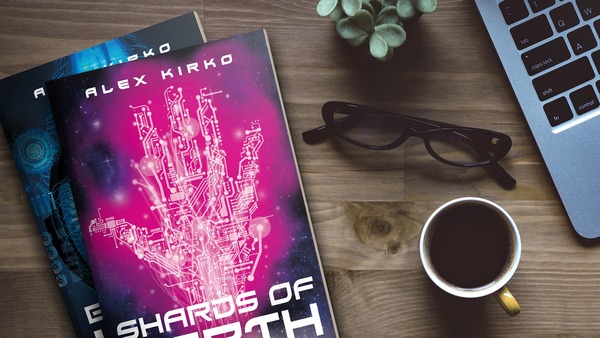Let's talk about the argument that life has diversity without a narrative reason, so it's obvious that all fiction should have diversity of race, sex, and gender.
The problem here is the assumption that good fiction reflects reality–all fiction needs in order to be effective is to be more stimulating and fun than everyday life. Ever recorded a conversation at a dining room table? It would be full of repetitions, mumbling, and pointless agreement. Good dialog is confrontational, succinct, and indirect. Ever tried to record your Tuesday and make it into a novel?
The writer's job is to distill something commonplace into an experience for the reader. And to do this, the writer needs to have a reason for every word they put on the page.
Social networks aren’t here to take care of your wellbeing.
Moreover, a well-adjusted customer is useless, because that person balances internet presence against everything else in their lives, and so doesn’t spend hours refreshing the page. Everyone knows this, and yet we act as if we don’t.
A service I use, Roll20, recently shit on its customers. To be more specific, one of the founders did this. A customer got banned, complained, and Nolan handled that complaint with a series of messages that got more and more aggressive. The customer then deleted his Roll20 account, wrote a post on the /r/dnd subreddit , and unleashed a wave of condemnation and unsubscribing that Roll20 had never seen before.
And it’s clear to me from the way this was handled that Nolan cares about the product he helps make and about how that product reflects on him, but that he views his customers (or this one at least) as something that he needs to tolerate to keep doing his work.
Seth Godin, a marketing professional I deeply respect, teaches that the only irreplaceable thing a company has is its relationship with the customers. You can outsource, automate or buy anything, but thinking about other humans, considering their desires, wellbeing, and future—this is what makes and breaks businesses in the 21st century.
There There by Tommy Orange is an objectively brilliant and subjectively shitty book.
Brilliant because it’s about as refined and politically correct as a bucketful of human flesh splattering against your face. Most chapters cut the reader’s soul open, shove a fist inside, grab something valuable and squeeze. The characters are different yet connected, and every story is sincere.
It’s shitty, at least for me, because it’s completely focused on what reality is without room for what it can be and how we get there. Tommy succeeded in letting me feel what life is like for a Native Indian in urban USA, but to me all art must be life-affirming. A book must show that there is more to gain by living, more to lose by dying. There must be a celebration of life, and this book didn’t provide any hope for me. It is an outcry of a people who had everything taken from them and who are mostly without voice, but it’s also distilled pain in literary form, and I have to ask what I gain from reading it. I hurt plenty without it and it doesn’t give me any new information. And I try to live by a simple rule: do only things that make me happy or help me learn. This book, at best, can make Native Indians happy because of their voice finally reaching ears. It can also make those Americans who have preferred to completely forget that Native Indians remember.
There are website fixes and changes incoming! For one, I'm going to set up a functioning search function in two weeks based on the wonderful magic of Google Custom Search JSON API. I want results to display in the same format as ordinary entries, and other tools I've looked into don't do a very good job at this: they cling to their own style or inject ads. So it's time to dust off my JavaScript coat and work some magic.
And just in case you are wondering why I haven't fixed it before . . .
In all honesty, I simply didn't notice that search wasn't working. I intended to set the function up when I first brought my website online, but since I used the site rarely, I never tried to search anything until now.

